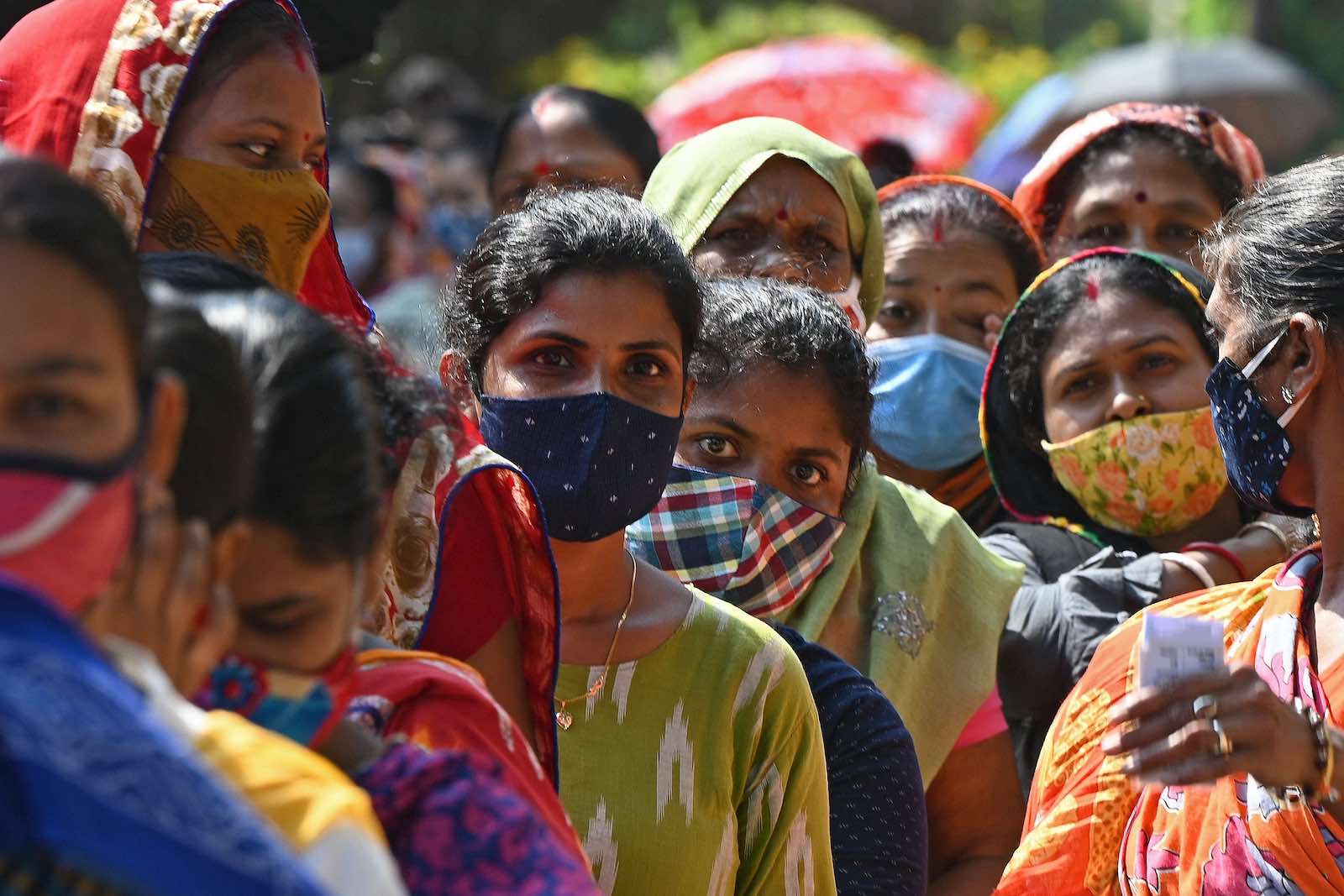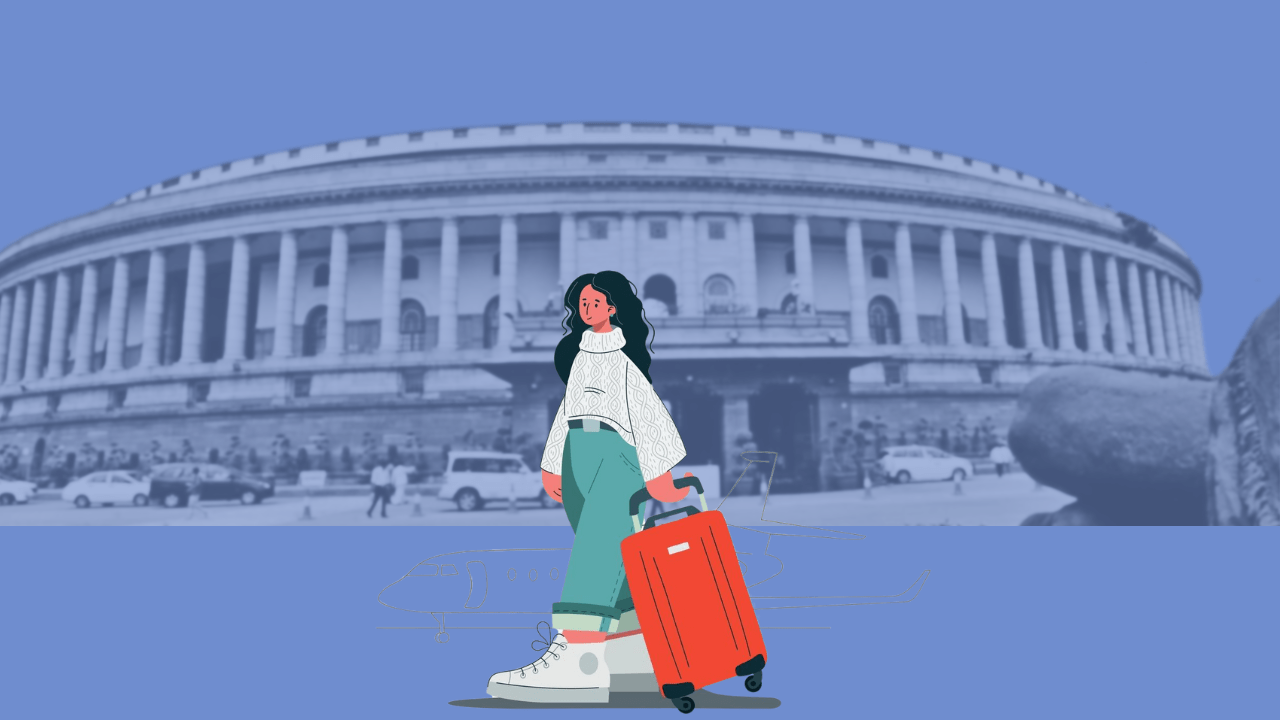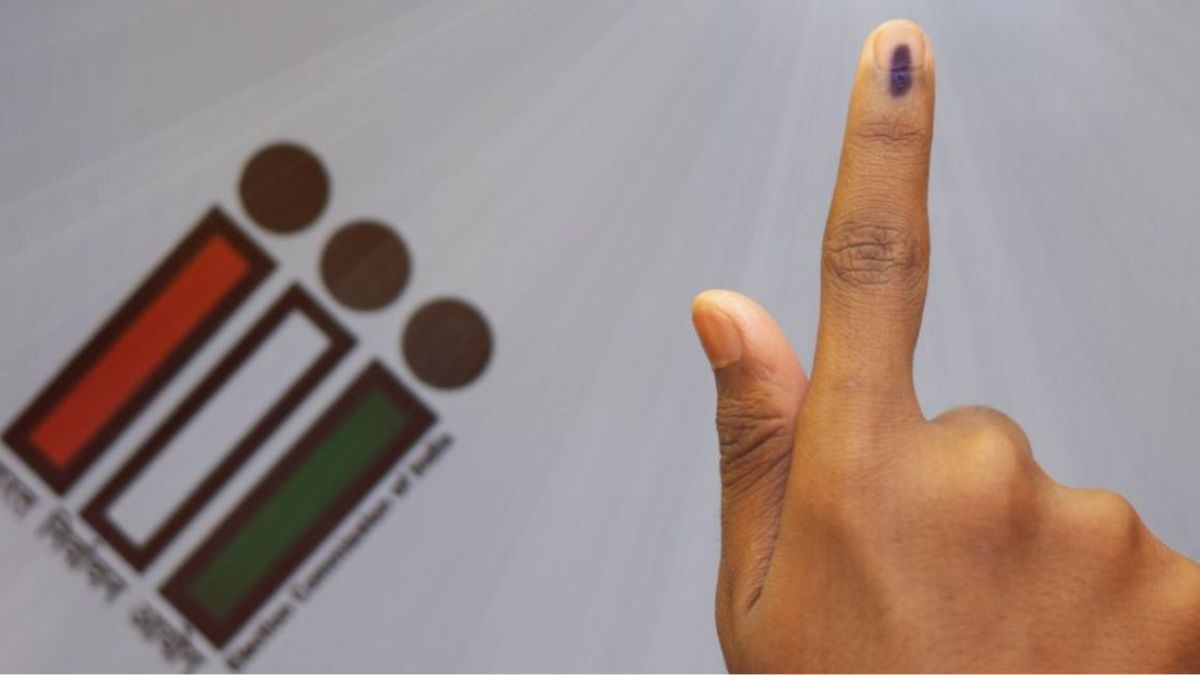I will soon be traveling nearly 7000 kilometres to cast my vote in the ongoing 18th Lok Sabha (Parliamentary) Elections in India. Billed as the biggest election in the world, it spans 7 phases, and has an approximately 969 million Indians eligible voters, and I am one of them.
I am excited to cast my vote!
Traveling to vote: not that easy an endeavour
Why the long travel? It’s because I live and work in the Netherlands, where I have been based since 2021. And although I am now married to an EU citizen, my Indian passport still grants me the right to cast my ballot in the ongoing general elections. Therefore, even before the Election Commission of India (ECI) announced the dates for the general elections, I had decided that I would plan my travel to India based on the dates when I could vote in my constituency in Mumbai. And as someone who follows politics closely, in India and beyond, it was a decision that I made in an eyeblink.
Moreover, the fact that this is a critical election for the survival and the future of the Indian democracy, has made it even more significant and urgent for me to be able to register my dissent, through my vote, against the politics of hate and division.
Moreover, the fact that this is a critical election for the survival and the future of the Indian democracy, has made it even more significant and urgent for me to be able to register my dissent, through my vote, against the politics of hate and division. And as someone who identifies as an intersectional feminist, and is active on social media about my political views and opinions, I couldn’t fathom not practicing what I am perceived to be preaching – that everything is political and we must be politically aware, active, and informed as citizens and residents, regardless of the country we choose to call home.
Simply put, I wanted to walk the talk, because, after all, as someone (we all know) once proclaimed: ‘hypocrisy ki bhi seema hoti hai’ [Even hypocrisy has its limits].
Nevertheless, this very conscious choice of traveling all the way to India to vote has also made me reflect on two important and related aspects – one, becoming (even) more aware of my own privilege to be able to invest time and money in traveling, while there are Indian citizens within India who, often as migrant workers, lack the same privilege to do so, and two, being curious about why Indian citizens, who live abroad and have all the privilege(s), choose not to prioritise voting, particularly for an election that is make or break for India’s democratic fabric and ethos. Here, I also want to be sure to say that not all Indians who live abroad possess the same privileges. There are considerable class and caste-based differences that shape these privileges abroad, just as they do back in India.
Who is counted, who is excluded?
Let’s start then with the first aspect. As I mentioned earlier, there are certain factors that have enabled my decision to travel to India to vote, ranging from having some amount of economic security, a stable job, a secured visa status, to a supportive partner who aligns on my values of recognising voting as a precious right, and having my partner’s parents take up the responsibility of looking after our son (yes, I am a stepmom!) while we travel to India. Hence, both family and work-related factors had to fall in place for me to exercise my basic right 7000 kms away and I feel extreme gratitude that my socio-economic circumstances empower me to exercise my fundamental right to vote (indeed, the personal is political!).
In fact, according to a recent report in IndiaSpend, the ECI acknowledged that one of the primary drivers of lower voter turn out is often the inability of migrant workers (within India) to travel to vote in their registered constituency.
However, many fellow Indian citizens, both in India and abroad, are devoid of these privileges. In fact, according to a recent report in IndiaSpend, the ECI acknowledged that one of the primary drivers of lower voter turn out is often the inability of migrant workers (within India) to travel to vote in their registered constituency. The costs associated with traveling, and in some cases, particularly for temporary migrant workers, the loss of work if they choose to travel, are important barriers that prevent them from exercising their right to vote. It is also not outlandish to assume that often complex work situations, an insecure visa status, and lack of affordable childcare and/or having extended family around, inhibits Indian citizens living abroad from traveling to vote. This is particularly true if you happen to be a working class migrant, or in a precarious work situation, where the sheer economics of it all makes it difficult to prioritise voting, even if you’d like to vote.
This example illustrates that the collective is also political – i.e. the broader ecosystem which we inhabit must also be reformed to enable a person to vote, whether they have migrated internally within India or are working abroad. In fact, I have often been asked in the recent months about whether India has absentee ballots or online voting, and I always feel embarrassed to admit that as the world’s largest democracy, not all citizens have this privilege (postal ballots exist in India but only for select section of voters).
However, there are countries globally that have made these options available to their citizens. For instance, Estonia has enabled remote online voting across the board for all its citizens, while countries like France, Panama and Australia have enabled online voting for certain sections of its voters, including for those who live abroad and voters with disabilities. Moreover, in the era of Artificial Intelligence (AI), there can also be exciting possibilities and opportunities to further this collective goal of ensuring that everyone has the options available to them to exercise their right to vote.
The farce of being “apolitical”
This brings me to the second aspect, i.e. the curious case of privileged Indian citizens (living abroad or in India) who choose not to vote. In fact, at the closing of Phase II of the elections, a digital news commentator lamented on the fact that voting should never be scheduled in the city of Bengaluru over the weekend, since people are more likely to leave the city for long weekend plans than utilise the day to vote (and news flash: according to the most recent polling data for Bengaluru from April 26, 2024, nearly half of Bengaluru voters skipped voting!).
This is a manifestation of a larger problem that afflicts both privileged Indians in India, but specifically privileged Indian citizens living outside India — the malaise of being “apolitical” or what one of my favourite YouTuber @meghnerd simply calls “the privilege of being ignorant”, the privilege to tune out, turn inwards, and adopt the attitude of “I don’t care about politics”.
Moreover, I contend that regardless of where you live, you ought to be aware and informed about the socio-political context of that country.
To me, this translates into a complete lack of recognition and awareness about how everything in our life, our interactions, and the systems that we live within, are imbued with power, and having the privilege to be ignorant of this reality is one that very few can afford. And to be sure, I don’t mean politics as a reductionist match between two teams (politics is not a sport!), but politics as in, having an informed awareness about our rights and entitlements as citizens, our role in holding our political leaders and governments accountable, and practicing solidarity (by voting) to show that we care about our fellow citizens and our country, even if we aren’t directly impacted by an issue.

Moreover, I contend that regardless of where you live, you ought to be aware and informed about the socio-political context of that country. Even if you may not be able to vote in that country yet, what happens in the halls of power impacts your life, even, and especially as immigrants/non-citizens. And hence, it’s disappointing that for those who have the resources and the privilege, voting remains a disinteresting, at the least, and an unimportant endeavour, at worst.
Reimagining and celebrating our right to vote
I believe, voting, therefore has to be re-imagined, both from an individual perspective and from a collective (state) one. Instead of reducing it to a sporting match, where the focus is often on who will win, there is an urgent need to re-direct that focus to ensure how we make elections truly matter to those who ultimately make the elections a meaningful exercise to begin with – all voters (migrant workers, NRIs, Indians within India). This means, pro-actively, making voting more accessible and inclusive — a responsibility of the state and a voter’s right, as well as inspiring citizens to enjoy voting – something that we look forward to celebrating together – just as we would a festival or a wedding.
I don’t have all the answers about how to infuse this enthusiasm and celebratory feeling with regard to voting, but I do believe that our narrative(s) on voting ought to change – whereby voting isn’t seen as a burden, a trivial chore, or dismissed as “unnecessary”, but instead observed as the day we, individually and collectively, reaffirm, rejuvenate and rejoice our faith in democracy – our democracy, that is absolutely worth traveling, all the 7000 kilometres!
About the author(s)
Surabhi Srivastava (She/Her) identities as an intersectional feminist, with her work located at the intersection of digital media and digital rights. She has worked on advancing comprehensive sexuality education in India and beyond for more than 10 years, and strongly believes that SRHR is essential for engendering a vibrant and progressive democracy. Surabhi is originally from Munbai, and now lives and works in the Netherlands.







